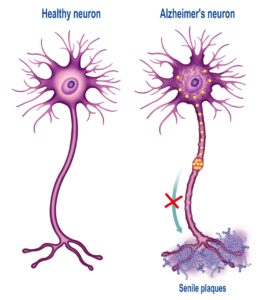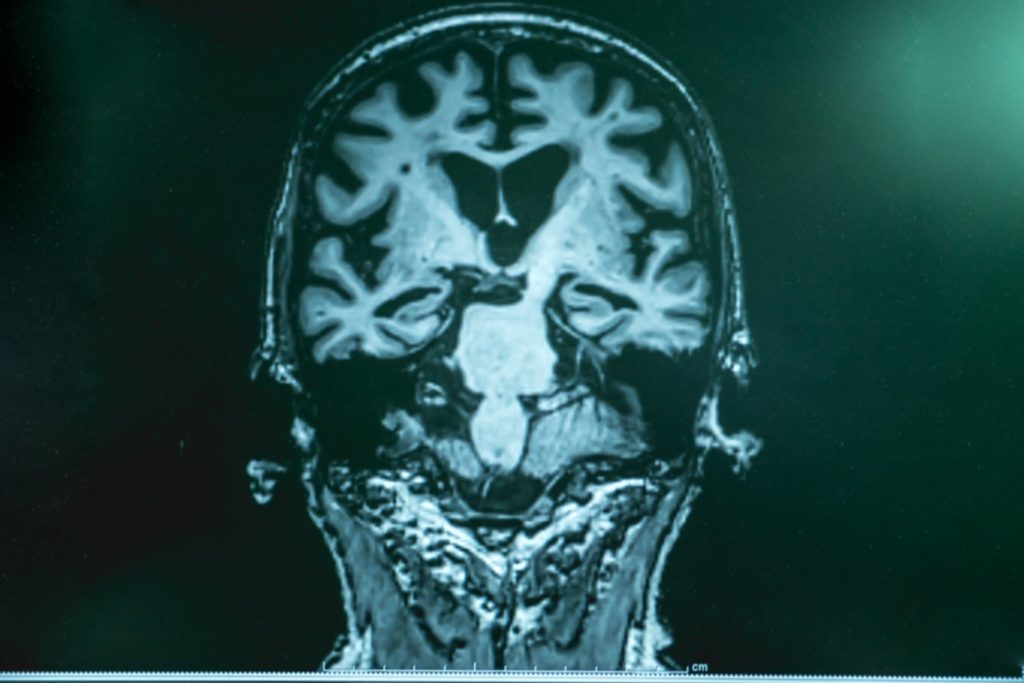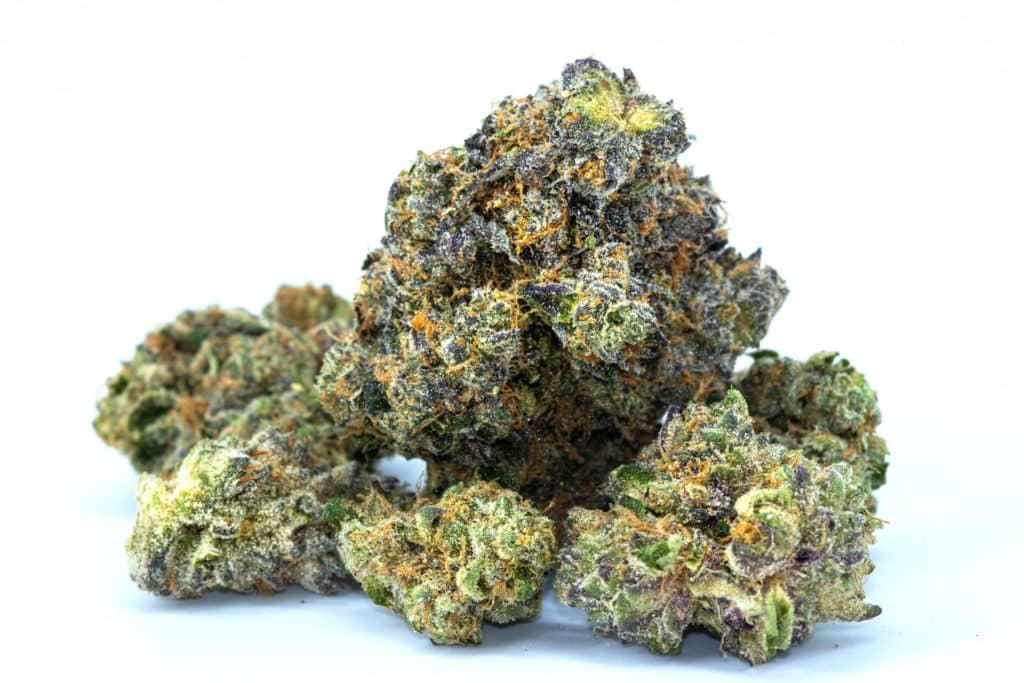Cheap MMJ Cards Online
A common question among many adults with aging parents is: Does CBD or THC in marijuana help Alzheimer’s patients? Please read along as we look at the relationship between cannabis and Alzheimer’s.
Starting with a brief history, we delve into the science behind the disease and explain how cannabis may hold promise for Alzheimer’s patients. We close up with guidelines on dosing and cannabis strains that may help relieve the symptoms of AD.
According to the Mayo Clinic, Alzheimer’s disease is a progressive disorder that causes brain cells to waste away and die. Alzheimer’s is the most common cause of dementia — a continuous decline in thinking, behavioral, and social skills that disrupts a person’s ability to function independently.
Alzheimer’s disease does not just impact the patient. It also affects those around them. Elderly Alzheimer’s patients may benefit from marijuana and reduce the challenges experienced by everyone involved.
As far back as 1890, Sir John Russell Reynolds, MD, Physician to Queen Victoria, published his findings on cannabinoid treatment in dementia patients. He describes patients wandering and fidgety at night or what Sir Reynolds referred to as sundowning. That is until they took a small dose of cannabis indica at bedtime.
Through Sir Reynold’s research on weed and Alzheimer’s, he determined that cannabis decreased the effect of sundowning. He recognized the benefits of medical marijuana for mental health, which we are still exploring today.
“I have found nothing comparable in utility to a moderate dose of Indian hemp given at bedtime. It has been effective for months and years, without any increase in the dose.” – Sir Reynolds.

To understand the benefits of marijuana for Alzheimer’s patients, it’s helpful to know how the disease works. Alzheimer’s disease usually begins by attacking the brain’s hippocampus, a critical brain region for memory processing. The three hallmark characteristics of the Alzheimer’s brain include:
Over time, neurofibrillary tangles from degenerated axons (the long projections from nerves that transmit electrical impulses) form webs. These dense misfolded webs form at the junction of nerves called synapses, preventing communication between nerves. This reduces the amount of available acetylcholine, the neurotransmitter chronically deficient in Alzheimer’s.
The lack of acetylcholine forms the basis of nerve degeneration. This lack of acetylcholine drives the clinically observable manifestations seen in Alzheimer’s patients. These manifestations include recent memory dysfunction, executive dysfunction, sleep/wake pattern disruptions, personality changes, depression, and irritability. These are common symptoms in the elderly with Alzheimer’s, and cannabis can help treat them.
The increase in endocannabinoid tone in Alzheimer’s patients reflects the adaptive homeostatic response to nerve inflammation, which improves neuroinflammation, oxidative stress, neurogenesis, and cerebral blood flow. Cannabis and its effects on Alzheimer’s occur when cannabinoids exert a group of actions to modulate neuronal dysfunction.
Central to this adaptive process is the critical presence of CB2 receptors on microglia. These vital support cells act as scavengers for the nervous system and clear out inflammatory debris. CB2 receptor activation on microglial cells initiates a cascade of events that potentiates beta-amyloid removal and reduces nerve inflammation. Such a cascade of benefits might be achievable through marijuana.
Activated CB1 receptors on the surface of microglial cells decrease harmful inflammatory glutamate release from nerve cells. This effect is the underlying mechanism that links cannabis and Alzheimer’s together.
CB1 receptor activation also inhibits acetylcholinesterase. This enzyme is responsible for the breakdown of acetylcholine. So its inactivation increases acetylcholine at nerve endings. Ironically, pharmaceutical drugs use this exact mechanism to increase acetylcholine concentration in the nerve terminals of Alzheimer’s patients.
Anandamide, 2-Acylglycerol (2-AG), and their metabolizing enzymes spike up in affected brain areas. With this information in mind, we can dive deeper into how weed and Alzheimer’s connect to benefit elderly patients.

The pathophysiology of Alzheimer’s leads to devastating effects on patients’ orientation, including person, place, and time. As a result, they are easily confused by familiar places and even distrust family members close to them.
Caregivers also suffer miserably with combative patients who often have other comorbid conditions that complicate management. Visual and hearing loss also contribute to disorientation and resultant mood disorders.
In addition, sundowning can be particularly frightening for patients. Because there are deficits in recent memory once the sun goes down, patients can’t tell whether the day has finished or is just beginning. Here are some scenarios that have prompted scientists to explore the link between cannabis and Alzheimer’s:
The disconnect lies in that Alzheimer’s patients have a conscious awareness that memories exist; they just can’t access them. This maddening scenario for the patient and caregivers creates a vicious cycle of constant apprehension and confusion.
There are Alzheimer’s symptoms that may respond to low-dose cannabis. These symptoms include sleep problems, paranoia, anxiety, pain, poor appetite, and weight loss.
So, does the combination of weed and Alzheimer’s help patients? As you have seen so far, there is evidence that medical marijuana has advantages for Alzheimer’s treatment.
A 2016 study published in the Journal of Alzheimer’s Disease looked at nursing home patients with Alzheimer’s dementia who had THC oil added to their current meds. All patients reported improvements in sleep, agitation, irritability, and caregiver distress after medical marijuana treatment.
Preliminary studies in rodents show the ideal response at a one-to-one (1:1) THC-to-CBD ratio for reducing harmful amyloid plaque. THC and CBD are beneficial chemicals in marijuana for Alzheimer’s patients.

Patients or caregivers should look for marijuana strains with high myrcene, linalool, and THC content. Myrcene enables cannabinoids to transfer from the blood to the brain more quickly, linalool promotes relaxation, and THC can help slow the disease’s progression.
Here are some of the best cannabis strains for Alzheimer’s and dementia patients.
This sativa-dominant hybrid with 21% THC can help reduce plaque buildup in the brain of Alzheimer’s patients while improving focus and cognitive functioning.
This strain, with up to 20% THC, is popular among medical marijuana users. It has uplifting qualities that can alleviate stress and depression.
This hybrid is the top recommendation by most dispensaries to help with health conditions. Its 24% THC content may act as a neuroprotectant and keep the brain from aging.
This hybrid strain with 25% THC is ideal for relieving pain and improving mood. It’s a relaxing combination as it’s an indica-dominant strain.
This energizing sativa-dominant strain can help fight stress and mood swings. Its 22% THC content can calm patients while giving them enough energy to tackle daily tasks.
Balanced cannabis dosing is crucial when using medical marijuana for Alzheimer’s. The principle here is starting low and increasing the dosage slowly to reach the desired effects. Note that the effects and required dosages can vary based on the strain used and the patient’s metabolism.
Balloon vaporizers are the favored delivery method for elderly Alzheimer’s patients, as smoking can lead to fire hazards. A small dose of 2.5 mg THC is the best place to start. Patients should take a 1-2 second inhalation and wait 10 minutes to evaluate the results. After that, they can take another inhalation and repeat the process until reaching the desired effect.

Cannabis treatment can help Alzheimer’s patients with symptoms, but results depend on the patient and their body. If you need help determining whether cannabis may be right for you or a family member, contact us to talk to an expert.
For those of you located in Oklahoma, Alzheimer’s is now considered a qualifying condition for a medical marijuana card in the state. Apply now and use cannabis to battle Alzheimer’s. If you enjoyed this article, visit our marijuana blog for more on cannabis.